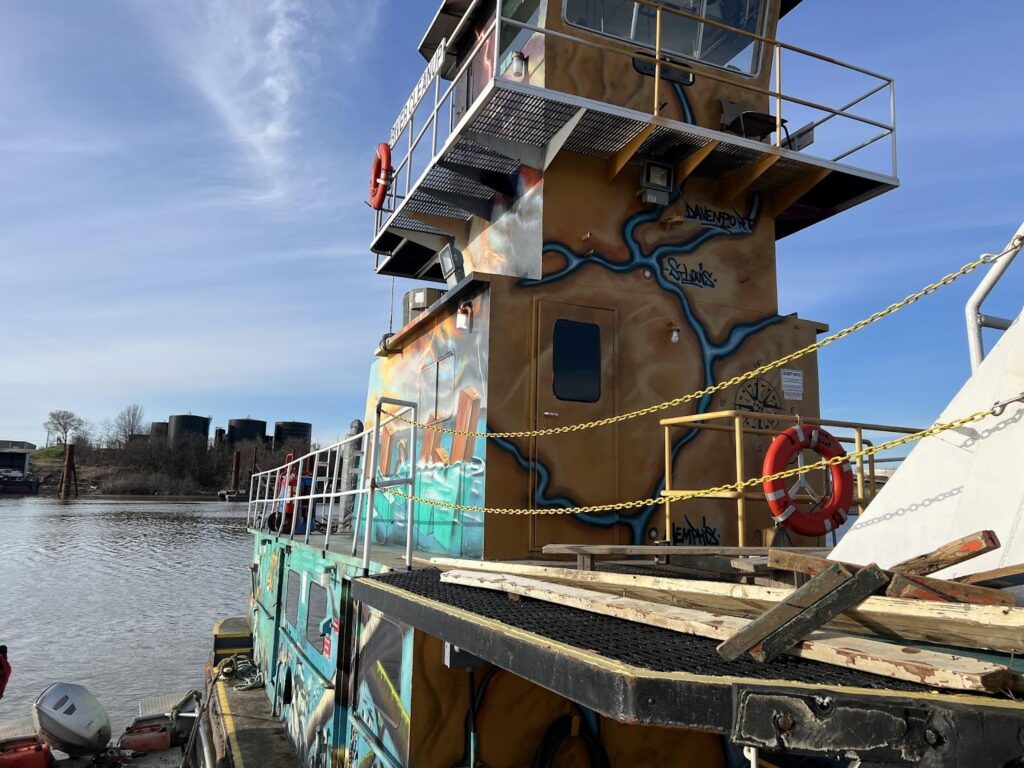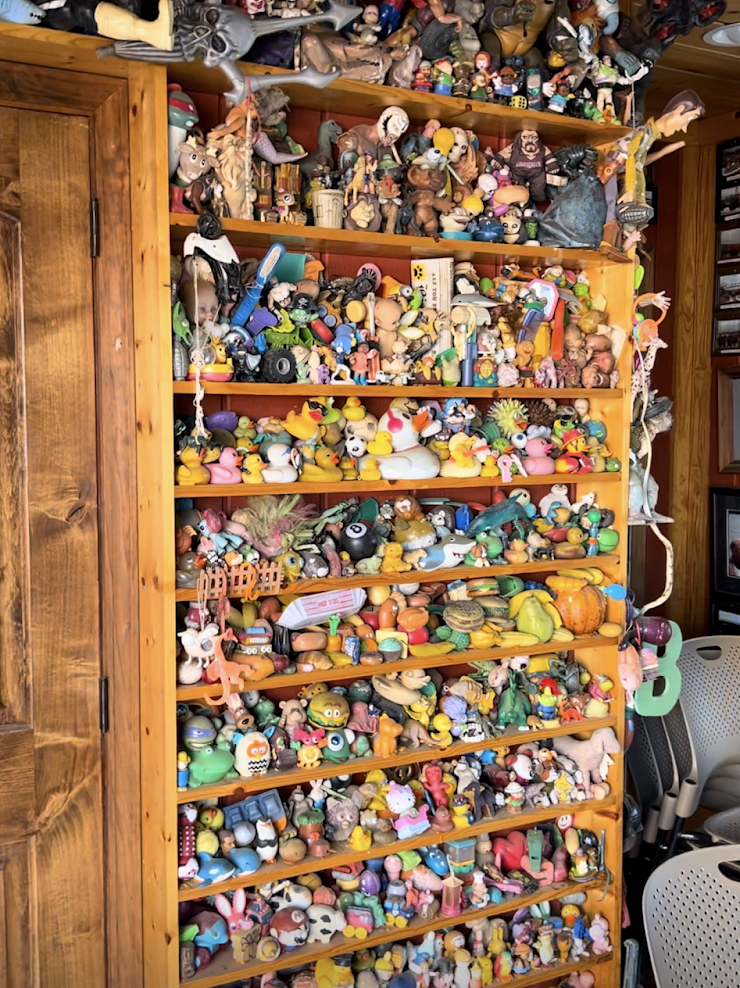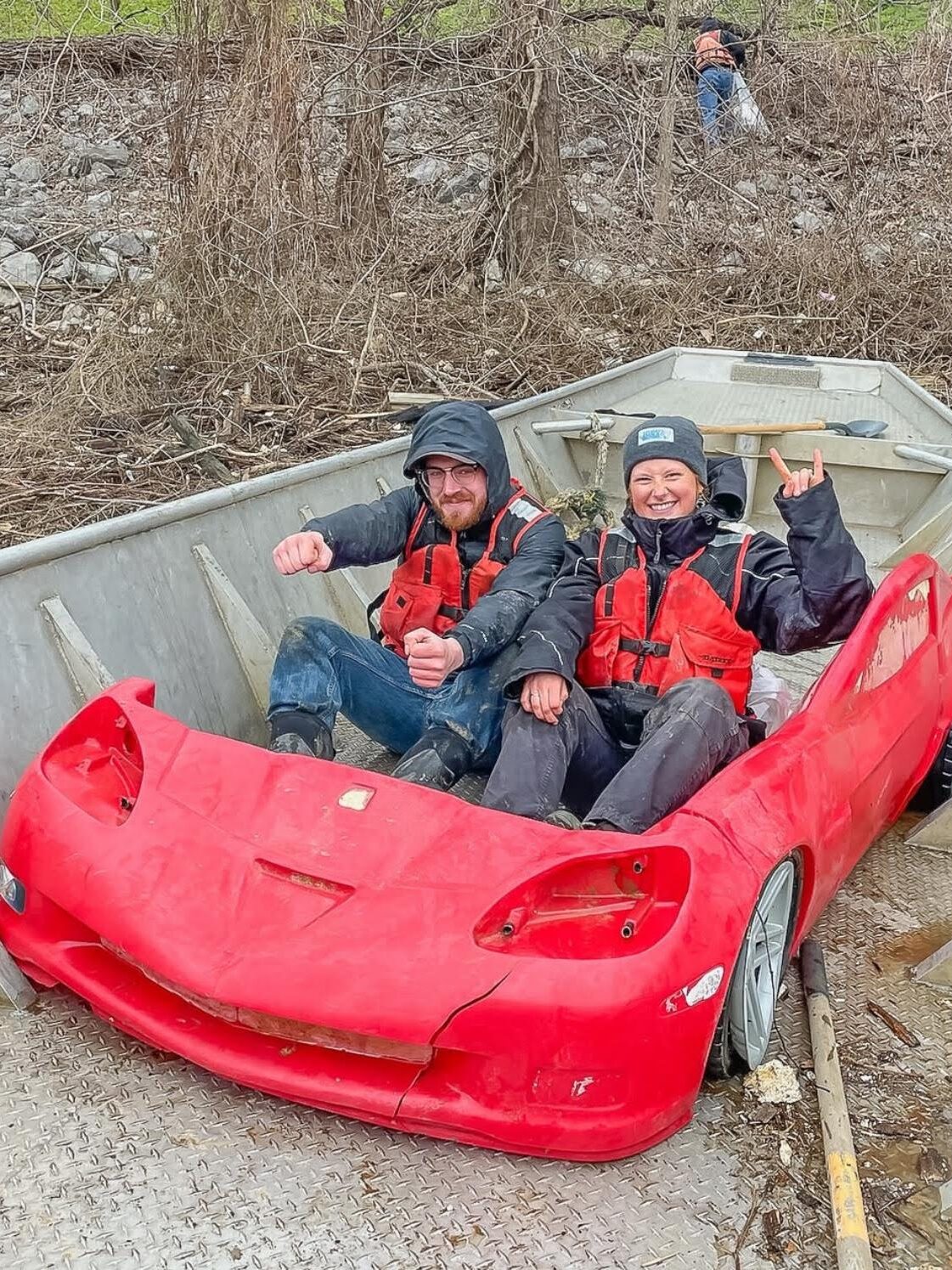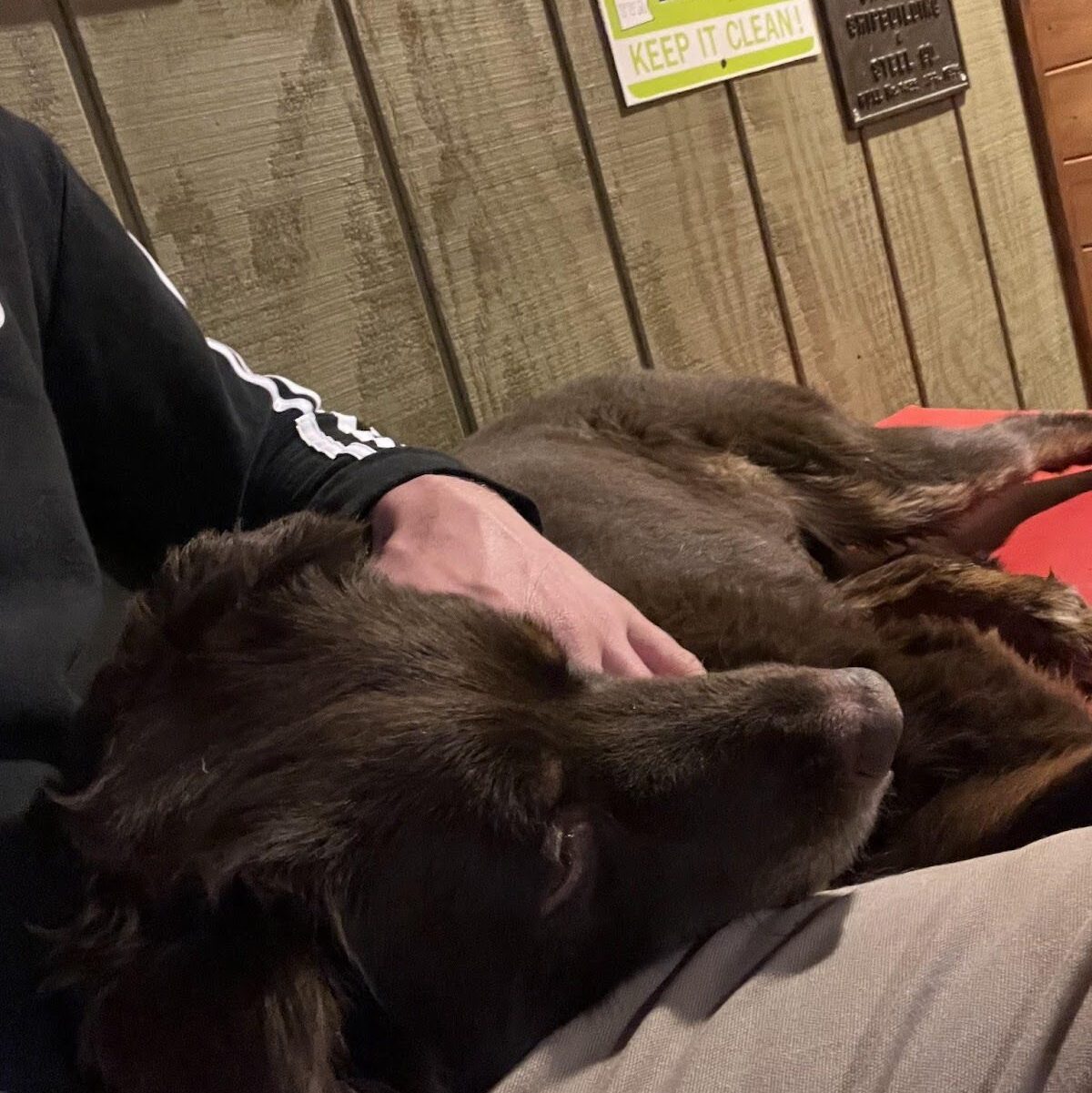The Mississippi River drains water from about 1.2 million square miles of land according to the National Parks Service. Unfortunately, water is not the only thing that makes its way from land into the river. Garbage such as plastic bottles, tires, plastic bags and anything else you can imagine make their way into the Mississippi either by washing in from flooding, flowing in from other rivers, and even littering directly into the river. Regardless of how this problem is caused, it can only be changed if people are willing to put in the work to pick it up.
This story starts in November of 2024 while I was attending the Minnesota Naturalists Association Conference. Our keynote speaker for this event was Chad Pregracke and I had the honor of sitting by him before his presentation. If I had known then what I know now, I would have been even more excited for the chance to have a conversation with such an enthusiastic person. During his presentation Chad talked about how he founded the non-profit “Living Lands and Waters” which protects, preserves and restores the natural environment of the nation’s major rivers and their watersheds. He talked about how he began as a clam diver in the Mississippi who noticed a problem and how that grew into the organization today. As I write this, Living Lands and Waters has removed 13,588,779 pounds of trash.

After Chad had finished speaking, he spoke with everyone who came to thank him (which was almost everyone who attended). Once the line had died down I followed suit and went to thank him. I expressed a lot of interest in the work that he and his team were doing, and was blown away when he wanted me to get involved. After a few months of planning and waiting I was able to join the crew on their barge in Memphis Tennessee. I was there for the first week of March for their “alternative spring break”, where college students chose to volunteer over their vacation from school.
I arrived at the airport on Sunday and called an Uber to the boat launch where I would be picked up and brought to the barge. When I got to the launch I was in awe. Having spent my life in Minnesota and Wisconsin, I am used to seeing clean rivers and waterways. While we may pride ourselves on that, what enters the river in the north eventually ends up further downstream. After taking a minute to see exactly what we were up against, I let the crew know I had made it and they sent a boat to pick me up.

Once on the barge, I got a tour of where I would be staying for the next few days as well as brief introductions to the crew. To say the crew was welcoming would be an understatement. The time for introductions was short however, because there were still things to prepare for the following days. I helped the crew with whatever tasks I could while getting to know them better. Once we were done with everything we had dinner and spent more time talking before finally going to bed.
The next few days went by in a blur. In the morning we would wake up and have breakfast while we discussed what the plan was, such as where we were cleaning and what was needed. After that we would all get ready and take jon boats, life jackets, gloves and decomposable garbage bags to the boat launch to meet with the volunteers. Once everyone was there we distributed the life jackets, gloves and bags, and took the boats to the area we would be cleaning. While most of the boats were for passengers, some were kept empty to carry bags of garbage back to the barge. Even though each area we moved had more garbage, both the crew and the volunteers were enthusiastic throughout the week. While we picked up garbage we also found trinkets and other items that could be cleaned and saved. The crew added these to the ever growing collection that is displayed in their classroom/ dining room on the barge. With some friendly competition, a lot of grit, and extreme amounts of teamwork, we were able to remove a total of 42,820 pounds of garbage in three and a half days.


Unfortunately, I had to leave early on Friday and say goodbye to the wonderful friends I made. Though that week may have ended, It helped me realize the things that I can do in my everyday life to make a difference. From picking up the stray piece of garbage on a hiking trail, to opting for reusable materials over plastic, the smallest difference does still make a difference.
I can’t thank Chad and the rest of the crew enough for the amazing experience as well as all of the incredible work they do, and I hope to have another chance to join them and help make our world a cleaner and healthier place.

We encourage you to learn more about Living Lands and Waters at https://www.livinglandsandwaters.org/.
